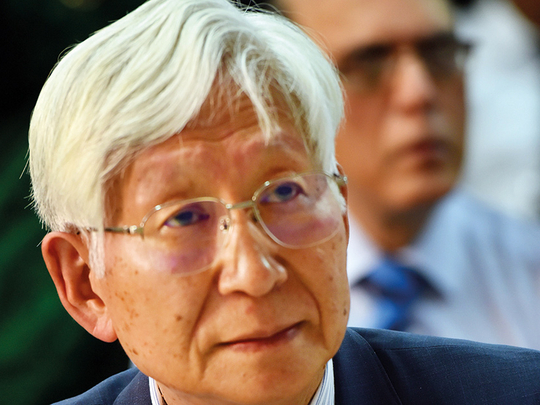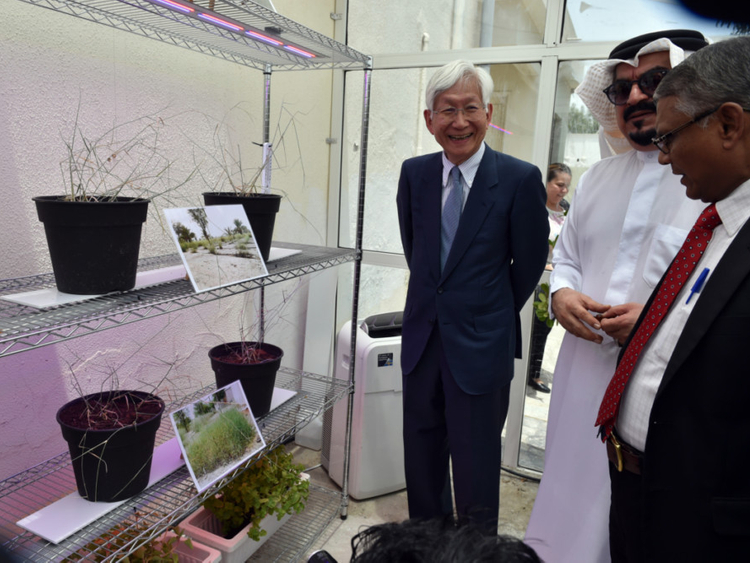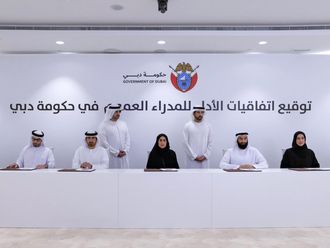
Abu Dhabi: A newly formed non-profit organisation headquartered in the capital is seeking to tackle world hunger and further the UAE’s goals towards food security as one of its first projects.
Global Mission, an international organisation, will promote international knowledge sharing and experience. For its inaugural venture, it has chosen to delve into sustainable agriculture so that even people in barren environments can produce their own food, Dr Tomihiro Taniguchi, Nobel laureate and the mission’s special adviser, told Gulf News.
“In many countries of the Middle East and Africa, basic agricultural conditions do not exist and this leads to malnutrition, famine and sometimes even mortality. We will therefore enable knowledge sharing and training about agricultural advances and this should, in turn, promote food security,” Dr Taniguchi said during a recent visit to the capital.
With the UAE spearheading this initiative, the mission is working to convene an international council of 10 countries, to choose and lead projects, by the end of the year.
Dr Taniguchi, a Japanese nuclear expert known for his work at the International Atomic Energy Agency, said the mission is already working to develop new, more water-efficient species of Thamam, a desert bunch grass commonly eaten by camels and racehorses.
“If we can develop species that manage with limited water, it would help rural populations in many African nations, for instance,” he said. The technology could also then be tested on other plant and crop varieties.
The mission has already shared its know-how to support a private school, the Shaikh Khalifa Bin Zayed Bangladeshi Islamia School, launch a plant conservatory in the capital.
The UAE, which imports up to 85 per cent of the food it consumes, has long prioritised food security as one of its policies. The country was ranked the first in the Arab region, and 23rd globally, on the Economist’s annual Global Food Security Index for 2015, but still had to spend Dh52 billion on food imports in 2015.
“The mission, therefore, hopes to position the UAE as a pioneer in shifting and revolutionising sustainable agriculture,” Dr Taniguchi said.
Nuclear technology, for instance, is a viable area of research when it comes to increasing food production and shelf life.
“Low, healthy doses of radiation have been used in many cases to prevent potatoes from budding too early, and to increase the resistance of cereal grains to humid conditions. Using international knowledge, we hope to encourage and advance such research,” he said.
According to the expert, it is equally important to invest in educating and training agricultural workers.
“Unfortunately, many regional workers and farm owners are still not motivated to practise more efficient land and water management methods. With our awareness and training programmes, we want to create a passion for environmental innovation and sustainability,” he added.













